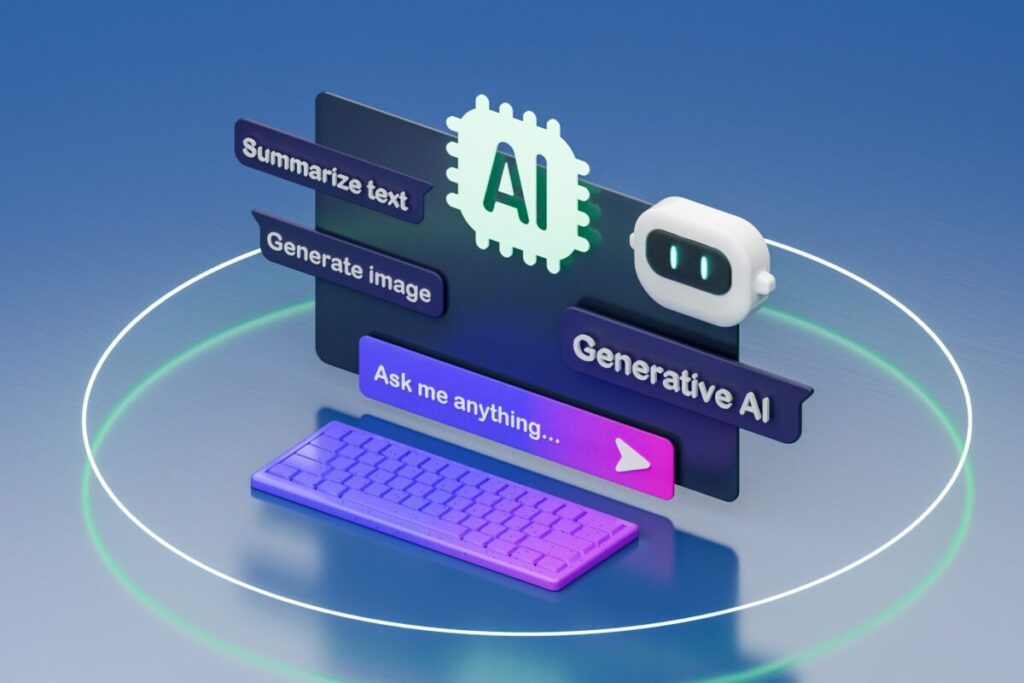Arm’s CEO, Rene Haas, recently outlined the company’s forward-looking strategy in the rapidly evolving artificial intelligence (AI) landscape. In his address, Haas emphasized Arm’s pivotal role in shaping the future of AI, highlighting the company’s plans to expand beyond its traditional chip design focus and into the AI-specific chip market. This move reflects Arm’s broader vision of integrating AI into every aspect of technology, from mobile devices to complex enterprise systems.
Arm’s Shift Towards AI-Specific Chips
Arm has long been a leader in chip design, especially for mobile devices. However, with the rapid rise of AI, the company is positioning itself to become a major player in the AI chip market. Haas pointed out that the growing complexity of AI workloads requires increasingly powerful computational resources, and Arm is focused on developing chips that can handle these demanding tasks. One of the company’s main goals is to ensure that its chips can efficiently process AI tasks across a variety of devices, ranging from smartphones and IoT devices to autonomous systems.
As AI workloads become more intensive, Arm is looking to address the demand for chips specifically designed to optimize AI performance. By leveraging its existing expertise in chip design, Arm aims to meet the diverse needs of AI applications across multiple sectors, which will be essential as AI becomes a core component in a wide range of devices and industries.
Emphasizing On-Device AI
Central to Arm’s strategy is its emphasis on on-device AI, a rapidly growing segment that is becoming increasingly important in modern computing. By enabling AI processing directly on devices, Arm seeks to reduce reliance on cloud-based computations. This shift will improve efficiency, speed, and security, which is particularly vital in applications like autonomous vehicles, augmented reality (AR), and edge computing.
On-device AI allows for faster decision-making and minimizes latency by performing computations locally, without the need to send data to centralized cloud systems. This development aligns with the growing demand for real-time AI processing, where immediacy is crucial, such as in autonomous driving or real-time data analytics for industrial systems.
Building a Heterogeneous Platform for Developers
Haas also discussed the importance of creating a heterogeneous platform that offers flexibility for developers in building AI solutions. As AI needs vary widely across industries such as healthcare, finance, and automotive, Arm’s platform approach is designed to provide the tools developers need to create highly specialized, industry-specific AI solutions. This versatility ensures that companies can tailor their AI systems to meet their unique requirements, all while benefiting from the underlying power of Arm’s chip architecture.
The ability to provide a flexible and scalable platform is essential for Arm as it competes with other industry giants like Nvidia and Intel, who dominate the AI hardware space. Arm’s existing expertise in power-efficient mobile chip design, combined with its new focus on AI, positions it uniquely in markets where efficiency, scalability, and cost-effectiveness are paramount. The company’s platform can provide a distinct value proposition for industries that require optimized solutions at the edge, where devices must run efficiently on limited resources.
Arm’s Competitive Edge in the AI Chip Race
As AI technology continues to revolutionize various industries worldwide, Arm’s strategic shift positions it to be at the heart of this transformation. The company is not merely adapting to the AI revolution; it is actively shaping it by offering solutions that cater to both developers and industries looking for cutting-edge AI chips.
Arm’s move to emphasize on-device AI and its heterogeneous platform approach gives it a strong competitive edge. By leveraging its strengths in power efficiency and scalability, Arm can target sectors where traditional AI solutions may not be feasible due to power or space limitations. Its entry into the AI chip market, combined with its ability to support a wide range of devices and applications, could place the company at the forefront of the next era of computing.
Conclusion
Arm’s bold shift toward AI-specific chips and on-device AI marks a pivotal moment in the company’s history. By expanding its focus from mobile chips to AI hardware, Arm is positioning itself as a leader in the rapidly evolving AI space. With a versatile, scalable platform and a strong emphasis on power efficiency, Arm is poised to play a critical role in advancing AI technologies across industries. As the demand for smarter, faster, and more efficient AI systems grows, Arm’s innovations could become integral to the future of computing.


